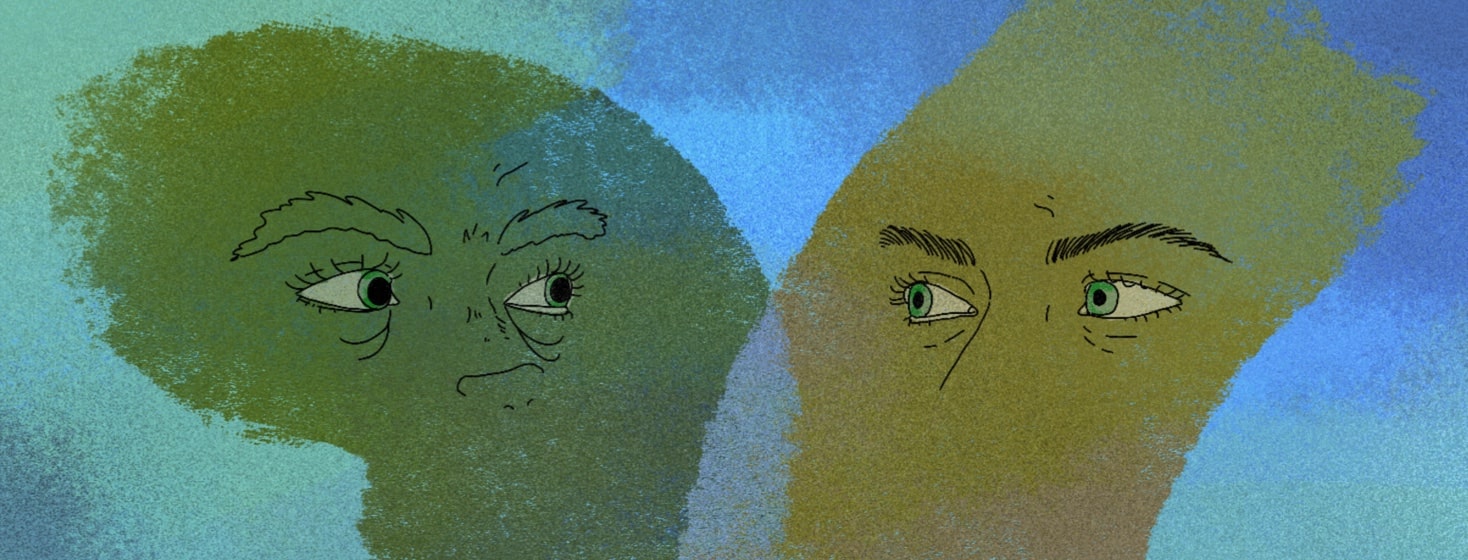Beautiful Monster
My mother is a Tibetan Buddhist and has been studying meditation and mindfulness for about 50 years. Nowadays, she tunes into online workshops with "Dharma teachers" – usually Tibetan monks who have some English.
She and I have conversations about our minds and the ways we attempt to work with the noise and confusion they often generate. Recently she told me about some teaching she received from one of these masters about depression. "Ah yes," he said, "the beautiful monster. Shake hands. You have to shake hands with the beautiful monster."
I wasn't so sure at first...
I have thought of my depression as many things – but beautiful monster is not one of them. Heavy wet blanket, suffocating fog, 200-pound weight on my chest – those all fit the bill. Monster... maybe. But beautiful?
So for the past several weeks I have been pondering this second-hand teaching from the monk.
Depression is certainly a monster
Here's what I like about "monster." It turns this deadening, passive pain into something with agency and design. The monster wants something. It also accurately identifies the danger. Monsters can kill you, just like depression. And it gives me something to work with – a character.
I confess that my depression monster looks like something from that animated movie Monsters, Inc. Some big hairy sad-sack who looks at me longingly, constantly dissatisfied with me, irritated and implacable. I swear at him, threaten him, throw things at him but he is immovable. And finally, he is sitting on me, crushing the breath out of me, trapping me and saying, "This is how it’s going to be from now on. Get used to it."
But beautiful?
Let's move him back across the room so we can work on... "beautiful." So the first thing I notice is that, unlike my most recent crush, finding beauty in a monster takes effort. My most recent crush appears before me and I am instantly struck by her beauty. Not so with this monster.
By the way, I have been calling the monster "he," but what if I used a different pronoun? Interesting... Let's call her "her" for a bit, just for curiosity's sake.
Her hair is matted. She hasn't been combed or brushed for a long time, maybe ever. Her eyes are dull – like the eyes of an aquarium fish, never focusing, only existing. Her enormous mouth droops, she smells like old garbage, and her breath stinks. Beauty? Where is the beauty in this monster?
Facing the beautiful monster
In his masterpiece Letters to a Young Poet, the poet Rainer Maria Rilke writes, "Perhaps all the dragons in our lives are princesses who are only waiting to see us act, just once, with beauty and courage. Perhaps everything that frightens us is, in its deepest essence, something helpless that wants our love." Yes – he is so, so sad this monster, and helpless. This monster doesn't hate me, he hates himself. But I am disappointing him somehow.
It dawns on me that he is seeking something from me, something he is not getting. Gradually, I feel a tenderness grow inside me for this poor, horrible creature. And in that tenderness – I slowly find her beauty. In her enormous, vulnerable eyes. In the corners of her mouth. In the soft pads of her dog-like paws.
Sitting with him
What does he want? I wish he would leave. I want him not to exist. But I know, to my dismay, she's not going anywhere. "To see us act, just once, with beauty and courage..."
So... I offer my hand. She looks at me, looks at my hand, suspended in the air between us, suddenly crackling with potential. Then, without meeting my gaze, she holds it, moving it slowly up and down. I feel the rough skin of her paws, and her enormous claws gently scratch my forearm. Then we release.
He's not with me all the time. But when he comes, which is usually in the morning, I do my best to be cordial. We shake hands. He sits beside me – which is better than on top of me. We feel exactly the same: lonely, sad, forgotten. We guard each other's solitude, to borrow another idea from Rilke.
Accepting our depression as part of us
The monk, of course, knows that there is no monster. The monk understands depression as an aspect of ourselves, one that we despise. And in despising it, we make more powerful. So the monk suggests acceptance, and loving kindness.
The monster turns to look at me and I see that his eyes are mirrors. He is a reflection. In accepting him, I am accepting me.
This or That
It's hard to acknowledge our accomplishments. Choose the affirmation you need today.
